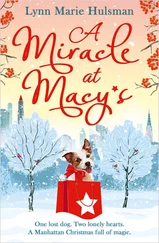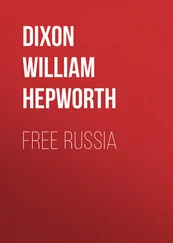Nikolai Nekrasov - Who Can Be Happy and Free in Russia?
Здесь есть возможность читать онлайн «Nikolai Nekrasov - Who Can Be Happy and Free in Russia?» весь текст электронной книги совершенно бесплатно (целиком полную версию без сокращений). В некоторых случаях можно слушать аудио, скачать через торрент в формате fb2 и присутствует краткое содержание. Год выпуска: 2005, Жанр: Поэзия, на английском языке. Описание произведения, (предисловие) а так же отзывы посетителей доступны на портале библиотеки ЛибКат.
- Название:Who Can Be Happy and Free in Russia?
- Автор:
- Жанр:
- Год:2005
- ISBN:нет данных
- Рейтинг книги:3 / 5. Голосов: 1
-
Избранное:Добавить в избранное
- Отзывы:
-
Ваша оценка:
- 60
- 1
- 2
- 3
- 4
- 5
Who Can Be Happy and Free in Russia?: краткое содержание, описание и аннотация
Предлагаем к чтению аннотацию, описание, краткое содержание или предисловие (зависит от того, что написал сам автор книги «Who Can Be Happy and Free in Russia?»). Если вы не нашли необходимую информацию о книге — напишите в комментариях, мы постараемся отыскать её.
Who Can Be Happy and Free in Russia? — читать онлайн бесплатно полную книгу (весь текст) целиком
Ниже представлен текст книги, разбитый по страницам. Система сохранения места последней прочитанной страницы, позволяет с удобством читать онлайн бесплатно книгу «Who Can Be Happy and Free in Russia?», без необходимости каждый раз заново искать на чём Вы остановились. Поставьте закладку, и сможете в любой момент перейти на страницу, на которой закончили чтение.
Интервал:
Закладка:
"That's all?"
"I can tell you
That twice we were swallowed
By fire, and that three times
The plague fell upon us; 40
But such things are common
To all of us peasants.
Like cattle we toiled,
My steps were as easy
As those of a horse
In the plough. But my troubles
Were not very startling:
No mountains have moved
From their places to crush me;
And God did not strike me 50
With arrows of thunder.
The storm in my soul
Has been silent, unnoticed,
So how can I paint it
To you? O'er the Mother
Insulted and outraged,
The blood of her first-born
As o'er a crushed worm
Has been poured; and unanswered
The deadly offences 60
That many have dealt her;
The knout has been raised
Unopposed o'er her body.
But one thing I never
Have suffered: I told you
That Sítnikov died,
That the last, irreparable
Shame had been spared me.
You ask me for happiness?
Brothers, you mock me! 70
Go, ask the official,
The Minister mighty,
The Tsar—Little Father,
But never a woman!
God knows—among women
Your search will be endless,
Will lead to your graves.
"A pious old woman
Once asked us for shelter;
The whole of her lifetime 80
The Flesh she had conquered
By penance and fasting;
She'd bathed in the Jordan,
And prayed at the tomb
Of Christ Jesus. She told us
The keys to the welfare
And freedom of women
Have long been mislaid—
God Himself has mislaid them.
And hermits, chaste women, 90
And monks of great learning,
Have sought them all over
The world, but not found them.
They're lost, and 'tis thought
By a fish they've been swallowed.
God's knights have been seeking
In towns and in deserts,
Weak, starving, and cold,
Hung with torturing fetters.
They've asked of the seers, 100
The stars they have counted
To learn;—but no keys!
Through the world they have journeyed;
In underground caverns,
In mountains, they've sought them.
At last they discovered
Some keys. They were precious,
But only—not ours.
Yet the warriors triumphed:
They fitted the lock 110
On the fetters of serfdom!
A sigh from all over
The world rose to Heaven,
A breath of relief,
Oh, so deep and so joyful!
Our keys were still missing….
Great champions, though,
Till to-day are still searching,
Deep down in the bed
Of the ocean they wander, 120
They fly to the skies,
In the clouds they are seeking,
But never the keys.
Do you think they will find them?
Who knows? Who can say?
But I think it is doubtful,
For which fish has swallowed
Those treasures so priceless,
In which sea it swims—
God Himself has forgotten!" 130
PART IV.
Dedicated to Serge Petrovitch Botkin
A FEAST FOR THE WHOLE VILLAGE
PROLOGUE
A very old willow
There is at the end
Of the village of "Earthworms,"
Where most of the folk
Have been diggers and delvers
From times very ancient
(Though some produced tar).
This willow had witnessed
The lives of the peasants:
Their holidays, dances, 10
Their communal meetings,
Their floggings by day,
In the evening their wooing,
And now it looked down
On a wonderful feast.
The feast was conducted
In Petersburg fashion,
For Klímka, the peasant
(Our former acquaintance),
Had seen on his travels 20
Some noblemen's banquets,
With toasts and orations,
And he had arranged it.
The peasants were sitting
On tree-trunks cut newly
For building a hut.
With them, too, our seven
(Who always were ready
To see what was passing)
Were sitting and chatting 30
With Vlass, the old Elder.
As soon as they fancied
A drink would be welcome,
The Elder called out
To his son, "Run for Trifon!"
With Trifon the deacon,
A jovial fellow,
A chum of the Elder's,
His sons come as well.
Two pupils they are 40
Of the clerical college
Named Sava and Grisha.
The former, the eldest,
Is nineteen years old.
He looks like a churchman
Already, while Grisha
Has fine, curly hair,
With a slight tinge of red,
And a thin, sallow face.
Both capital fellows 50
They are, kind and simple,
They work with the ploughshare,
The scythe, and the sickle,
Drink vodka on feast-days,
And mix with the peasants
Entirely as equals….
The village lies close
To the banks of the Volga;
A small town there is
On the opposite side. 60
(To speak more correctly,
There's now not a trace
Of the town, save some ashes:
A fire has demolished it
Two days ago.)
Some people are waiting
To cross by the ferry,
While some feed their horses
(All friends of the peasants).
Some beggars have crawled 70
To the spot; there are pilgrims,
Both women and men;
The women loquacious,
The men very silent.
The old Prince Yutiátin
Is dead, but the peasants
Are not yet aware
That instead of the hayfields
His heirs have bequeathed them
A long litigation. 80
So, drinking their vodka,
They first of all argue
Of how they'll dispose
Of the beautiful hayfields.
You were not all cozened, [54] A reference to the arranging of terms between the Pomyéshchicks and peasants with regard to land at the time of the emancipation of the serfs.
You people of Russia,
And robbed of your land.
In some blessed spots
You were favoured by fortune!
By some lucky chance— 90
The Pomyéshchick's long absence,
Some slip of posrédnik's,
By wiles of the commune,
You managed to capture
A slice of the forest.
How proud are the peasants
In such happy corners!
The Elder may tap
At the window for taxes,
The peasant will bluster,— 100
One answer has he:
"Just sell off the forest,
And don't bother me!"
So now, too, the peasants
Of "Earthworms" decided
To part with the fields
To the Elder for taxes.
They calculate closely:
"They'll pay both the taxes
And dues—with some over, 110
Heh, Vlásuchka, won't they?"
"Once taxes are paid
I'll uncover to no man.
I'll work if it please me,
I'll lie with my wife,
Or I'll go to the tavern."
"Bravo!" cry the peasants,
In answer to Klímka,
"Now, Vlásuchka, do you
Agree to our plan?" 120
Интервал:
Закладка:
Похожие книги на «Who Can Be Happy and Free in Russia?»
Представляем Вашему вниманию похожие книги на «Who Can Be Happy and Free in Russia?» списком для выбора. Мы отобрали схожую по названию и смыслу литературу в надежде предоставить читателям больше вариантов отыскать новые, интересные, ещё непрочитанные произведения.
Обсуждение, отзывы о книге «Who Can Be Happy and Free in Russia?» и просто собственные мнения читателей. Оставьте ваши комментарии, напишите, что Вы думаете о произведении, его смысле или главных героях. Укажите что конкретно понравилось, а что нет, и почему Вы так считаете.











